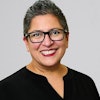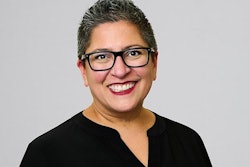 At some universities, students are expressing increased interest in LGBTQ Studies programs.
At some universities, students are expressing increased interest in LGBTQ Studies programs.
LGBTQ+ Studies courses have existed for decades, but minors or certificates in such studies have been offered at many institutions for fewer than 20 years. Research, scholarly discourse, and interest continue to grow, with the pandemic bringing new areas to investigate.
“Since the pandemic struck, I have seen an upswing in LGBTQ+ Studies student interest in mutual aid,” says Dr. Cary Gabriel Costello, associate professor of sociology and director of LGBTQ+ Studies at the University of Wisconsin-Milwaukee, which offers an undergraduate certificate. “While before the pandemic, student attention might have focused more on queer crafting, grassroots political organizing, or reforming family structures, the topic of communities finding ways to provide for themselves the social services they need has really piqued students’ interest.”
Measuring impact
Mutual aid is when people bond together to meet each other’s needs understanding that existing systems do not meet their needs. They also work to see established systems improve their responses. Costello says the last two years have been stressful, and he has noticed students in general dealing with mental health issues that have been more pronounced for LGBTQ+ students.
Each semester, Costello surveys students in his classes to get information about their lives, interests, and challenges. In fall 2020, 40 % of students in his online introductory level sociology class reported mental health issues. In his LGBTQ+ Studies-affiliated course, 65 % of students reported somewhat or very poor mental health since the start of quarantine. Graduate student instructors, working together with Costello, provided “informal social work services” for the undergraduates.
“Things have yet to return to the pre-COVID normal, such as it was,” says Costello. “It has been exhausting for lots of folks, but it has been a privilege to see my graduate student instructors go above and beyond the call of duty to help struggling undergrads and to witness students in LGBTQ+ Studies courses supporting one another.”















